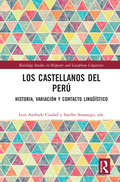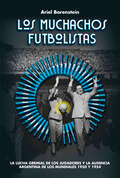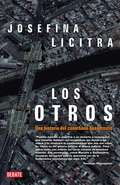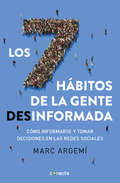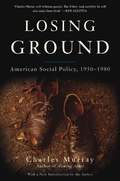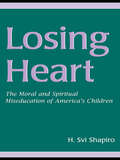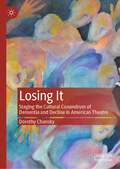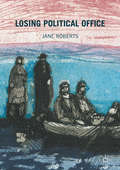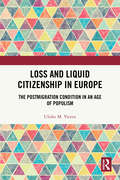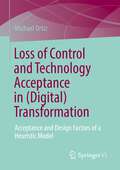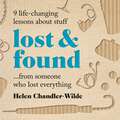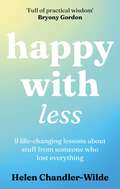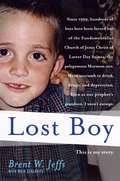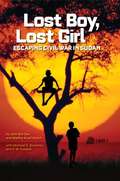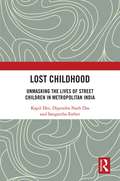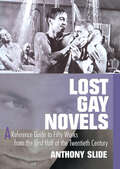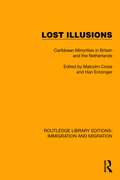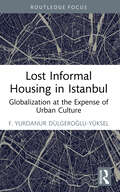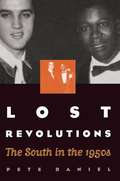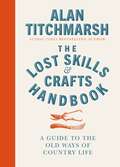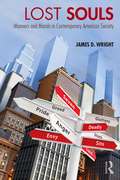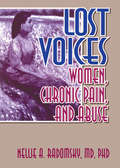- Table View
- List View
Los castellanos del Perú: historia, variación y contacto lingüístico (Routledge Studies in Hispanic and Lusophone Linguistics)
by Luis Andrade Ciudad y Sandro Sessarego, eds.Este libro reúne contribuciones de destacados investigadores de la lingüística hispánica para ofrecer un panorama integral de los castellanos del Perú, incluidos algunos que han sido tradicionalmente objeto de discriminación, como el castellano andino, el amazónico y el afroperuano. Los capítulos se concentran en diferentes variedades habladas en el Perú desde distintos enfoques teóricos y metodológicos, atendiendo a su formación, su contexto social e histórico y los fenómenos de contacto que las caracterizan. De este modo, aunque el volumen tiene un foco regional muy específico, los problemas que aborda son de interés y relevancia para el estudio de otras variedades del español, para el tratamiento de otros problemas derivados del contacto lingüístico y para la dialectología e historia de los castellanos latinoamericanos en general. Escrito en castellano, este volumen será de interés para estudiantes graduados en lingüística hispánica e investigadores dedicados a la dialectología, la sociolingüística y la lingüística del contacto.
Los muchachos futbolistas: La lucha gremial de los jugadores y la ausencia Argentina de los mundiales 1950 y 1954
by Ariel BorensteinCon entrevistas y una gran investigación en medios de la época, textos historiográficos y clásicos del cine argentino, Borenstein reconstruye la historia de los desencuentros entre el país peronista y la principal pasión popular: el fútbol. Un episodio central es el de la huelga que entre 1948 y 1949 protagonizaron entre otros el ya legendario Pedernera y el ascendente Di Stéfano. Los muchachos futbolistas cuenta la historia de una década de paradójicos desencuentros entre el primer peronismo y la principal pasión popular de Argentina. La de los años en que los jugadores consolidaron un proceso de profesionalización que se había iniciado en los 30 y se sindicalizaron. Clave en esta época fue la huelga de futbolistas que -entre 1948 y 1949- encabezó un ícono como Adolfo Pedernera -el de La Máquina de River-, tras la cual un centenar de jugadores se fueron al exilio, provocando una sangría en las filas locales mientras el fútbol brasileño despegaba y el colombiano vivía una era dorada gracias a la participación de los argentinos que recalaron allí. ¿Por qué, a pesar de lo que significaba el fútbol para la sociedad de la época y de la activa promoción del deporte que se hizo desde el gobierno, Argentina no participó en los mundiales de Brasil 1950 ni de Suiza 1954? ¿Cómo se explica que Alfredo Di Stéfano, el primer crack global, el más genuino antecesor de Messi y Maradona, haya hecho su carrera en Colombia y en España y ya no volviera a jugar en su tierra? Ariel Borenstein indaga en las circunstancias de este atípico momento en el que faltó sincronización entre dos de los fenómenos que definen al país, tendiendo inevitablemente un puente entre nuestros "muchachos", los que nos volvieron a ilusionar, y aquellos primeros, inolvidables y combativos "muchachos" del tango y la marcha peronista.
Los ojos del otro: Encuentros restaurativos entre víctimas y ex miembros de ETA
by Esther Pascual Rodríguez«Personalmente, pensaba que el encuentro no me aportaría gran cosa, pero no fue así. Cuando él apareció en la salita donde nos encontramos y, después de las presentaciones, nos miramos a los ojos, me di cuenta de lo mal que lo estaba pasando. Creo que estaba como avergonzado... Estuvimos hablando y preguntándonos durante casi tres horas. No quiero entrar en detalles, pero lo que más me impresionó durante la conversación fue lo que repetía una y otra vez; tenía la autoestima por los suelos, no veía nada bueno en él y decía: ?Todo en mí es malo?, ?No hay nada bueno en mí?. Le dije que eso no era cierto: ?Si lo fuera, no estaríamos aquí ninguno de los dos?. Y añadí: ?Creo que has sido muy valiente en reconocer todo el daño causado, has sabido comprender que todo lo que hiciste en el pasado fue un gravísimo error y has pedido perdón por ello; pero, lo más importante, has recuperado tu libertad y el derecho a ser un ciudadano?. Las personas que hemos colaborado en los encuentros restaurativos, tanto los victimarios como las víctimas, lo hemos hecho de forma voluntaria. Nadie nos lo ha impuesto. Sin embargo, entiendo, sobre todo desde el mundo de las víctimas, la crítica, que a veces ha sido desproporcionada, hacia las personas que hemos decidido participar. Así como nosotros respetamos su decisión, su postura de no querer participar, me gustaría pedir que también nuestra opción sea respetada; nosotros no nos sentimos mejores ni peores, simplemente actuamos según nuestra forma de pensar» (Tomado del Prólogo, de Maixabel Lasa). Han colaborado en el presente volumen: Alberto José Olalde Altarejos / Francisca Lozano Espina / Esther Pascual Rodríguez / José Luis Segovia Bernabé / Julián Carlos Ríos Martín / Eduardo Santos Itoiz / José Castilla Jiménez / Luis María Carrasco Asenguinolaza / Xabier Etxebarria Zarrabeitia.
Los otros: Una historia del conurbano bonaerense
by Josefina Licitra«Josefina viajó hasta un lugar del conurbano bonaerense que, décadasatrás, pudo ser un jardín pero terminó en desangradero. Volvió con esterelato intenso en el que se mezclan cloacas, curtiembres, ríos pútridosy muertos jóvenes, una historia de vecindad amarga de los que tienenpoco contra los que no tienen nada, aunque todos hayan llegado hastaallí buscando más o menos lo mismo. Y aunque, por supuesto, ya nadie seacuerde de eso». Leila Guerriero En Lanús hay un barrio llamado Villa Giardino, al lado de otro deterrenos tomados llamado Acuba. Entre ambos, un muro y un conflicto quesintetiza el espíritu de un territorio que parece inabarcable: elconurbano bonaerense. Josefina Licitra cuenta esta historia conmaestría, sin pretensiones de corrección política y con una claridad queconmueve. El resultado es un relato clásico y a la vez complejo, dondeno hay buenos y malos y donde las palabras, lejos de encubrir, arrojanuna verdad a la cara.
Los siete hábitos de la gente desinformada: Cómo informarse y tomar decisiones en las redes sociales
by Marc Argemí BallbéVivimos el espejismo de creer que, como hemos consultado internet, estamos lo suficientemente informados para tomar buenas decisiones. Sin embargo, esta idea es errónea. Este libro permite identificar los hábitos que nos hacen más vulnerables a la desinformación en el entorno digital y ofrece las herramientas para decidir por nosotros mismos tanto en el terreno personal como profesional. Estar bien informado significa contar con suficientes datos para, de entre todas las decisiones posibles, poder elegir una. Sin embargo, la experiencia nos demuestra que muchas decisiones tomadas con seguridad están lejos de sustentarse en los datos, circunstancia que explica que podamos parecer al mismo tiempo unos perfectos ignorantes y muy decididos. Internet y las redes sociales han llevado esta problemática hasta el extremo. Nunca antes habíamos tenido acceso a tanta información, aunque esto no implica que seamos capaces de escoger mejor. Los algoritmos del entorno digital (donde conviven webs, Facebook, Instagram, Twitter o WhatsApp) no siempre están programados para ayudarnos a elegir de forma adecuada. Tenemos la engañosa percepción de que estamos bien informados y, por ello, decidimos correctamente. No obstante, la desinformación nos afecta en nuestra vida personal y profesional. ¿Soy víctima de este fenómeno? La respuesta, con toda probabilidad, sería afirmativa porque nos desinformamos con facilidad y de modos muy diversos. El objetivo de este libro es ayudar a identificar los hábitos que nos hacen más vulnerables: el cuñadismo, la incredulidad crédula, la indecisión crónica, la ansiedad, el confusionismo relacional, el activismo visceral y la precariedad informativa. Y, con sus herramientas prácticas para contrarrestar la desinformación, será de utilidad tanto para los expertos en redes sociales y profesionales de la gestión de cuentas en Twitter como para aquellas personas que solo visitan las páginas web de los periódicos de toda la vida.
Losing Ground: American Social Policy, 1950-1980
by Charles MurrayThis classic book serves as a starting point for any serious discussion of welfare reform. Losing Ground argues that the ambitious social programs of the1960s and 1970s actually made matters worse for its supposed beneficiaries, the poor and minorities. Charles Murray startled readers by recommending that we abolish welfare reform, but his position launched a debate culminating in President Clinton’s proposal "to end welfare as we know it. ”
Losing Ground: Identity and Land Loss in Coastal Louisiana
by David M. BurleyWhat is it like to lose your front porch to the ocean? To watch salt water destroy your favorite fishing holes? To see playgrounds and churches subside and succumb to brackish and rising water? The residents of coastal Louisiana know. For them hurricanes are but exclamation points in an incessant loss of coastal land now estimated to occur at a rate of at least twenty-four square miles per year. In Losing Ground, coastal Louisianans communicate the significance of place and environment. During interviews taken just before the 2005 hurricanes, they send out a plea to alleviate the damage. They speak with an urgency that exemplifies a fear of losing not just property and familiar surroundings, but their identity as well. People along Louisiana’s southeastern coast hold a deep attachment to place, and this shows in the urgency of the narratives David M. Burley collects here. The meanings that residents attribute to coastal land loss reflect a tenuous and uprooted sense of self. The process of coastal land loss and all its social components, from the familial to the political, impacts these residents’ concepts of history and the future. Burley updates many of his subjects’ narratives to reveal what has happened in the wake of the back-to-back disasters of Hurricanes Katrina and Rita.
Losing Heart: The Moral and Spiritual Miseducation of America's Children
by H. Svi ShapiroIn this book Svi Shapiro explores the ideological and attitudinal functions of schools, looking especially at what is called the 'hidden curriculum.' He offers both an analysis of the role of education in producing and maintaining attitudes and values that contribute to our competitive, socially unequal, instrumental, consumerist, and self-oriented culture and a radically different vision for what our schools should be about--a vision that focuses on education's role in supporting a more critically reflective, socially responsible, and compassionate culture.Federal and state legislation have propelled schools today in the direction of an increasingly test-driven, instrumental, and individually competitive regime. Under these legislative mandates, schools are increasingly alienating and stressful places for both students and teachers. Most disturbing is that this form of education is not conducive to providing young people with the capacity to cope with the moral, cultural, spiritual, and political challenges of the world they inhabit. More than only offering a critique of schools, Shapiro proposes a counter-vision that can lead to a different kind of culture and society, and he discusses strategies for advocating and implementing it. Written in a style that is very accessible to a wide range of readers, Losing Heart: The Moral and Spiritual Miseducation of America's Children is also carefully researched and draws on relevant theory to make a strong case.This book speaks to a wide range of readers, including academics and students in education, sociology, anthropology, political science, and cultural studies; public school professionals; and the general public interested in education. It will appeal to faculty in schools of education who are looking for a text that offers both a critical language and one that speaks to possibility and change.
Losing It: Staging the Cultural Conundrum of Dementia and Decline in American Theatre
by Dorothy ChanskyThis monograph is a study of American (U.S.) stage representations of dementia mounted between 1913 and 2019. Its imbricated strands are playtexts; audiences as both the targets of the productions (artifacts in the marketplace) and as anticipated determinants of legibility; and medical science, both as has been (and is) known to researchers and, more importantly, as it has been (and is) known to educated general audiences. As the Baby Boom generation finds itself solidly in the category of “Senior,” interest in plays that address personal and social issues around cognitive decline as a potentially frightening and expensive experience, no two iterations of which are identical, have, understandably, burgeoned. This study shines a spotlight on eleven dementia plays that have been produced in the United States over the past century, and seeks, in the words of medical humanities scholar Anne Whitehead, to “open up, and to hold open, central ethical questions of responsiveness, interpretation, responsibility, complicity and care.”
Losing Matt Shepard: Life and Politics in the Aftermath of Anti-Gay Murder
by Beth LoffredaThe infamous murder in October 1998 of a twenty-one-year-old gay University of Wyoming student ignited a media frenzy. The crime resonated deeply with America's bitter history of violence against minorities, and something about Matt Shepard himself struck a chord with people across the nation. Although the details of the tragedy are familiar to most people, the complex and ever-shifting context of the killing is not. Losing Matt Shepard explores why the murder still haunts us -- and why it should. Beth Loffreda is uniquely qualified to write this account. As a professor new to the state and a straight faculty advisor to the campus Lesbian Gay Bisexual Transgender Association, she is both an insider and outsider to the events. She draws upon her own penetrating observations as well as dozens of interviews with students, townspeople, police officers, journalists, state politicians, activists, and gay and lesbian residents to make visible the knot of forces tied together by the fate of this young man. This book shows how the politics of sexuality -- perhaps now the most divisive issue in America's culture wars -- unfolds in a remote and sparsely populated area of the country. Loffreda brilliantly captures daily life since October 1998 in Laramie, Wyoming -- a community in a rural, poor, conservative, and breathtakingly beautiful state without a single gay bar or bookstore. Rather than focus only on Matt Shepard, she presents a full range of characters, including a panoply of locals (both gay and straight), the national gay activists who quickly descended on Laramie, the indefatigable homicide investigators, the often unreflective journalists of the national media, and even a cameo appearance by Peter, Paul, and Mary. Loffreda courses through a wide ambit of events: from the attempts by students and townspeople to rise above the anti-gay theatrics of defrocked minister Fred Phelps to the spontaneous, grassroots support for Matt at the university's homecoming parade, from the emotionally charged town council discussions about bias crimes legislation to the tireless efforts of the investigators to trace that grim night's trail of evidence. Charting these and many other events, Losing Matt Shepard not only recounts the typical responses to Matt's death but also the surprising stories of those whose lives were transformed but ignored in the media frenzy.
Losing Political Office
by Jane RobertsBased on in-depth interviews conducted with British politicians, this book analyses the different impacts of leaving political office. Representative democracy depends on politicians exiting office, and yet while there is considerable interest in who stands for and gains office, there is curiously little discussed about this process. Jane Roberts seeks to address this gap by asking: What is the experience like? What happens to politicians as they make the transition from office? What is the impact on their partners and family? Does it matter to anyone other than those immediately affected? Are there any wider implications for our democratic system? This book will appeal to academics in the fields of leadership, political science, public management and administration and psychology. It will also be of interest to elected politicians in central, devolved and local government (current and former), policy makers and political commentators, and more widely, the interested general reader.
Loss and Liquid Citizenship in Europe: The Postmigration Condition in an Age of Populism
by Ulrike M. VietenLoss and Liquid Citizenship in Europe offers a means of understanding how experiences of loss intersect with discourses of migration and citizenship, to affect feelings of belonging with respect to host communities and newcomers. Adopting a de-colonial and intersectional perspective, it examines the condition of postmigration, regarding it as a space of social, cultural, and political transformation. In doing so, it questions the dominant binary in terms of both legal distinctions and socio-cultural distinctions between settled majorities and migrating minorities. Confronted with the spread of a neo-populist, far-right political agenda across the world, this book provides new insights into ways in which we might re-conceptualise a vision of social inclusion for both majorities and minorities on the move. As such, it will appeal to scholars and students across the social sciences with interests in migration and diaspora, citizenship and belonging.
Loss of Control and Technology Acceptance in (Digital) Transformation: Acceptance and Design Factors of a Heuristic Model
by Michael OrtizIn the context of the (digital) transformation of economy and society, the technology acceptance of the population is increasingly influenced by a perceived loss of control through new technologies. Loss of control is defined in this volume as a multi-causal, multi-modal and cyclical process of transition of control and conceptually brought together in a multi-dimensional heuristic model. The results of a first quantitative-empirical analysis for Baden-Württemberg based on this model confirm that loss of control is a central factor influencing technology acceptance, but is perceived differently by different socio-demographic groups.
Lost & Found: 9 life-changing lessons about stuff from someone who lost everything
by Helen Chandler-WildeAn exploration into why we keep holding on to material things and what they mean to usOn New Year's Eve of 2018, journalist Helen Chandler-Wilde lost everything she owned in a storage unit fire in Croydon, where she'd stowed all her possessions after a big break-up. She was left devastated, and forced to re-evaluate her relationship with owning material things. A mix of memoir, self-help and journalism, Lost & Found explores the psychological reasons for why we buy and keep the things we do, and explains how we can liberate ourselves from the tyranny of 'too much'. Helen interviews people from all walks of life, including behavioural psychologists on the science of nostalgia, a nun on what it's like to own almost nothing and consumer psychologists on why we spend impulsively, to help us better understand why we're surrounded by clutter and what we can do to change it.This smart-thinking book explains the sociological quirks of human nature and the fascinating science behind why we buy and hold onto things. By the end of it, your relationship with your belongings will be changed forever.
Lost & Found: 9 life-changing lessons about stuff from someone who lost everything
by Helen Chandler-WildeAn exploration into why we keep holding on to material things and what they mean to usOn New Year's Eve of 2018, journalist Helen Chandler-Wilde lost everything she owned in a storage unit fire in Croydon, where she'd stowed all her possessions after a big break-up. She was left devastated, and forced to re-evaluate her relationship with owning material things. A mix of memoir, self-help and journalism, Lost & Found explores the psychological reasons for why we buy and keep the things we do, and explains how we can liberate ourselves from the tyranny of 'too much'. Helen interviews people from all walks of life, including behavioural psychologists on the science of nostalgia, a nun on what it's like to own almost nothing and consumer psychologists on why we spend impulsively, to help us better understand why we're surrounded by clutter and what we can do to change it.This smart-thinking book explains the sociological quirks of human nature and the fascinating science behind why we buy and hold onto things. By the end of it, your relationship with your belongings will be changed forever.
Lost Boy
by Maia Szalavitz Brent W. JeffsStarred Review. In this moving debut memoir, the nephew of a Mormon sect leader chronicles life in the Fundamentalist Church of Jesus Christ of Latter Day Saints, and what came after. Among a 10,000-member Mormon community, Jeffs grew up with three mothers, more than a dozen siblings, and a deep fear of the world outside of the church. Within the secretive community, Jeffs was taught that purity came from special attention to dress, hard work, generosity and, most importantly, obedience to one's elders (especially his uncle, the prophet Warren Jeffs). The focus of this fast-paced memoir is the sexual abuse Jeffs and his brothers endured at the hands of their relatives during church and school functions, for which he would file a class-action lawsuit in 2004. Jeffs's descent into depression proves the beginning of the end for his relationship with the church and, consequently, with much of his family. Jeffs outlines the core beliefs of the Church, along with the oppressive ends to which they were used, and the heartbreaking fate of those church members expelled into a society they were raised to see as evil and corrupt. This hard-to-put-down, tightly woven account pulls back the curtain on what's become a perennial news story, while illustrating the impiety of absolute power and the delicacy of innocence. Copyright Reed Business Information, a division of Reed Elsevier Inc. All rights reserved.
Lost Boy, Lost Girl: Escaping Civil War in Sudan
by John Bul Dau Martha Arual AkechOne of thousands of children who fled strife in southern Sudan, John Bul Dau survived hunger, exhaustion, and violence. His wife, Martha, endured similar hardships. In this memorable book, the two convey the best of African values while relating searing accounts of famine and war. There's warmth as well, in their humorous tales of adapting to American life. For its importance as a primary source, for its inclusion of the rarely told female perspective of Sudan's lost children, for its celebration of human resilience, this is the perfect story to inform and inspire young readers.
Lost Childhood: Unmasking the Lives of Street Children in Metropolitan India
by Kapil Dev Dipendra Nath Das Sangeetha EstherLost Childhood explores the everyday lives of street children in India. It presents insights on their life on the streets to provide a comprehensive understanding of why they are driven to extreme means of livelihoods. This volume, · Inquiries into the histories of street children, and discusses their socio-economic and socio-demographic characteristics to provide a sense of their living conditions; · Sheds light on the social injustice experienced by these children, their health and hygiene, and also looks at the insecurities faced by the children in their interactions with the society; · Uses detailed field research data to highlight issues that affect the lives of street children such as education, gender discrimination, and their social networks; · Suggests a way forward that would not only benefit street children but will also be of use to the community in understanding their lives, problems, and help explore this issue in further detail. The book will be useful to scholars and researchers of human geography, development studies, child development, urban poverty, and social justice. It will also be of interest to policymakers, social workers, and field workers who work with street children.
Lost Gay Novels: A Reference Guide to Fifty Works from the First Half of the Twentieth Century
by Anthony SlideSearching for an introduction to the shadowy, intriguing world of early 20th century gay-themed fiction? In Lost Gay Novels, respected pop culture historian Anthony Slide resurrects fifty early 20th century American novels with gay themes or characters and discusses them in carefully researched, engaging prose. Each entry offers you a detailed discussion of plot and characters, a summary of contemporary critical reception, and biographical information on the often-obscure writer. In Lost Gay Novels, another aspect of gay life and society is, in the words the author, "uncloseted," providing you with an absorbing glimpse into the world of these nearly forgotten books. Lost Gay Novels gives you an introduction to: authors who aren't usually associated with homosexuality, including John Buchan, James M. Cain, and Rex Stout the history of gay publishing in the US and abroad gay themes in novels published between 1917 and 1950-with entries from nearly every year! the ways in which the popular culture of the time shaped the authors' attitudes toward homosexuality the difficulty of finding detailed biographical information on little-known authors If you're interested in gay studies or history, or even if you're just looking for a comprehensive guide to titles you've probably never heard of before, Lost Gay Novels will be a welcome addition to your collection. The introduction from author Slide-called by the Los Angeles Times "a one-man publishing phenomenon"-provides you with an overview to the basics of this landmark collection. Themes found in many of the titles include death, secrecy, and living a double life, and in reading the entries you will discover just why these themes are so common. As Slide says in his introduction: "The approach of the novelist toward homosexuality may not always be a positive one... but the works are important to an understanding of contemporary attitudes toward gay men and gay society." Lost Gay Novels will help you further your own understanding of the dynamic relationship between literature and culture, and you will finish the book with a greater appreciation of modern American gay fiction.
Lost Illusions: Caribbean Minorities in Britain and the Netherlands (Routledge Library Editions: Immigration and Migration #14)
by Cross Malcolm Entzinger HanLost Illusions, first published in 1988, analyses the differing experiences of Caribbean migration to Britain and the Netherlands, both from the perspectives of the countries and from the migrants themselves. The editors have compiled a volume of in-depth articles from experts from Britain and the Netherlands to provide an essential examination of Caribbean migration to two different European countries in the 1970s and 1980s.
Lost Informal Housing in Istanbul: Globalization at the Expense of Urban Culture
by F. Yurdanur Dulgeroglu-YukselThe dynamics of globalization brought a radical change in megacities and tensions between the stakeholders and dwellers against top-down urban renewal policies. This unique book provides a worldview of multi-stakeholders in the urban housing market. With a longitudinal research approach, it paves the way for interdisciplinary researchers to critically assess the urban renewal projects and update such studies. The urban renewal processes are implemented without participation, and the book highlights field-based information for policymakers. The reader will find, with the information provided from the field, why participation is necessary for a sustainable urban development, why there are different types of urbanizations, and how it works under different conditions. Better understanding of the challenges of urban renewal processes in the world cities is intended with the focus on the changing informal settlements. Istanbul is a megacity, housing more than half of its dwellers in informal settlements. After many decades of self-upgrading and silently communicating with the local authorities, the informal sector had become adapted and maintained its living spaces. Unexpectedly, the end of the first decade of the 21st century marked a radical urban land valuation and international investments. Top-down interventions started with naming Istanbul the 2010 European Capital of Culture. Then came the Law of Urban Transformation, which meant the fast decline of squatter housing and the speedy loss of its cultural value of the mahalle spirit, place identity. The book will raise curiosity on why the time has come to change the perspectives about the informal urban sector.
Lost Revolutions: The South in the 1950s
by Pete DanielLost opportunities littered the southern landscape in the years between World War II and Freedom Summer. One can only imagine how different southern history might have been if politicians, the press, the clergy, and local leaders had supported democratic reforms that bestowed full citizenship on African Americans. And one can only imagine how little would have been accomplished if a handful of blacks and whites had not taken risks to bring about the changes that did come.
Lost Skills and Crafts Handbook
by Alan TitchmarshIn this inspirational and practical guide to country life, passionate and hugely knowledgeable countryman Alan Titchmarsh explores the heritage of rural Britain, its landscapes and wildlife, its traditions, customs and crafts. The Lost Skills and Crafts Handbook will help you rediscover your love of the countryside, including:- a checklist of British butterflies and where to find them- how to keep chickens, ducks, goats and sheep- how to make soap, candles and your own herbal remedies- how to track animals and forage for food- essential knot tying- how to build a campfire without matches- how to create a kitchen garden- the origins of country superstitionsAnd much more. With beautiful line art illustrations throughout, this compendium of the British countryside and its delights will be an essential read for any nature lover in your life.
Lost Souls: Manners and Morals in Contemporary American Society
by James D. WrightWhat is the state of contemporary American morality? From their original conception in Christian scripture to their assimilation into Western culture, the 'Seven Deadly Sins' – lust, greed, envy, pride, and all the rest – have guided human morality, steering human behavior and psychology away from evil and toward a full embrace of the good. But their hold on modern life is increasingly tenuous. Indeed, one may observe that these days, deadly sin is far more common and more commonly practiced than its virtuous counterparts – humility, charity, kindness, industriousness, and chastity. Without greed, there is no economy; without anger, no politics; and without pride and envy, surely less motivation and competition would exist. James D. Wright carefully examines the complexities and ambiguities in modern society in the context of the seven deadly sins and their corresponding virtues. Are we all lost souls, condemned by our immoral deeds, or are the trappings of older sin deteriorating? Is it time, finally, to reconsider the classifications of evil and good? Wright uses each chapter to consider how the social sciences have operationalized each 'sin', how they have been studied, and what lessons have been learned over time. He reviews recent trends and contemplates the societal costs and benefits of the behaviors in question. Lost Souls emerges, then, as a meditation on contemporary sin, concluding that the line between guilt and innocence, right and wrong, is often very thin.
Lost Voices: Women, Chronic Pain, and Abuse
by Nellie A RadomskyIn this illuminating book, Dr. Nellie Radomsky explores the complexity of chronic pain in women and evidence for its association with abuse--an issue largely unrecognized by medical practitioners. Modern medical training emphasizes diagnosis and cure, but chronic pain problems often have no identifiable organic cause, and the women who suffer are often not listened to in the doctor’s office. Lost Voices: Women, Chronic Pain, and Abuse addresses how women, by gaining knowledge of the ways the medical culture--and the larger culture--have silenced them, may move into a healing process and learn to speak out. The author encourages women in pain to give voice to their buried experiences and shows them that speaking out about their experiences with abuse and chronic pain can be the first step on the road to healing. The author explores the lost voices of women in pain through stories based on her personal encounters with patients in her practice. These women and their case histories help illustrate the interactions of chronic pain and abuse and the complexity of the doctor-patient relationship. Among the many areas Dr. Radomsky examines are:how the medical culture has silenced women chronic pain in women with a history of abuse the relationship of women’s healing processes and the sense of finding and expressing “lost voices” the doctor-patient relationship and obstacles to healing the limitation of medical models with respect to understanding complex chronic pain issues how acute and chronic pain differ and how physicians and patients alike struggle with this understandingScientific but very readable, Lost Voices assists readers in the search for answers to complex pain problems. It is a hope-full resource for women struggling with chronic pain and personal abuse issues and an enlightening guide for physicians, therapists, and others working with these women. Professionals working in the area of chronic pain, readers involved in feminist issues, and academic physicians interested in medicine as culture will find Lost Voices a revealing book.
